Playing alone is an important step toward independence. However, many children are reluctant to go out on their own, so a little coaxing may be in order.
While traveling with children may seem like a daunting prospect, experts say it has significant benefits. Travel can expand a kid’s world, making them more empathetic toward cultural differences and helping them adapt to changing situations.
Child development experts tell us that thumb-sucking isn’t anything to worry about in children under 5. In fact, it can be an appropriate and useful behavior.
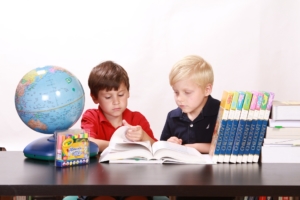
Research shows that the interaction between a teacher and a child significantly impacts that child’s social and emotional development. So it comes as no surprise that when a teacher shows a child warmth and respect, that child will be much more likely to develop positive relationships with teachers and peers going forward.
In early childhood settings, when teachers and children interact with one another, children are learning how to model positive relationships. The best teachers will use a variety of strategies to foster positive relationships with the children in their care. What follows are some of the most important of these strategies:
- Get to know each child as an individual. Taking the time to talk to a child and learn about their likes and dislikes makes that child feel that they are valued. Does the child have a pet? Do they have brothers or sisters?
- Let children know that they are safe with you. When children feel that you understand how they are feeling, it helps to build trust. It also makes them feel safe. If a child is upset, get down on their level and make eye contact. Let them know that you understand what they are saying and redirect the child’s attention toward more positive things. For example, ask them what they would like to do that day or tell them about activities that you have planned.
- Be positive. A positive attitude is contagious. When teachers are calm, caring and supportive, that rubs off on the children in their care.
- Set expectations. When children know what to expect they are able to perform and behave better. Set high standards and communicate those standards in a way that children can understand. Most importantly, when a child meets expectations, make sure to acknowledge it and let them know how proud you are of them.
- Play with them! Joining in when children are playing is a great way to foster the teacher-child relationship. Let a child tell you what they are building and ask them lots of questions.
Every interaction a teacher has with child affects how that child will feel about themselves and will have a significant impact on how they learn and grow. Some interactions are more important than others, as well. Positive, intentional and reciprocal interactions contribute to the best outcomes. Research shows that children are happier, more confident and more excited to learn when the adults in their lives engage in nurturing interactions.
When it comes right down to it, a successful teacher-child relationship involves meeting every children where they are, understanding them and developing connections with them. Such a relationship benefits both the child and the teacher.
Premier Academy offers affordable childcare in the Omaha/Elkhorn area. To learn more, visit us at premieracademyinc.com.
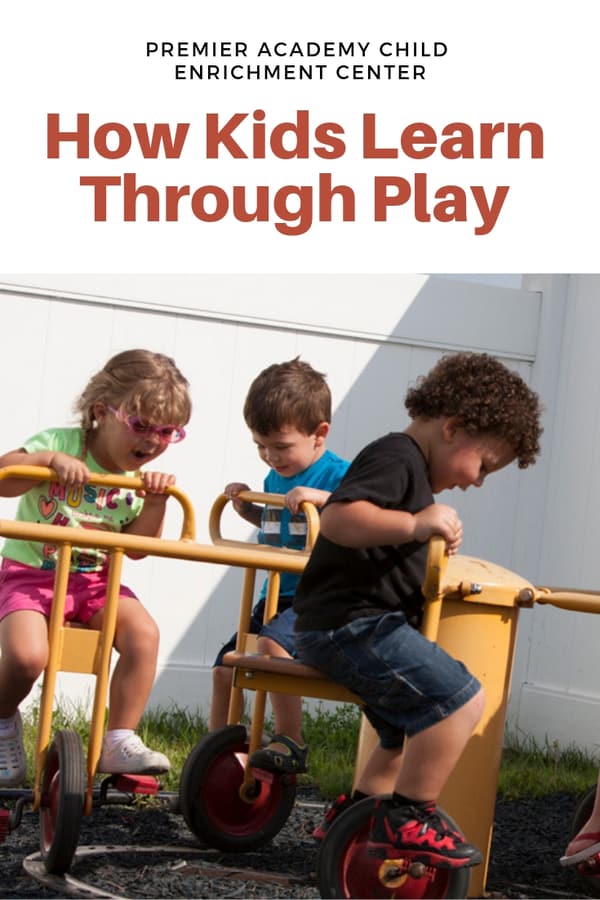
Originally posted on Oh My OMAHA
For the last few years, I’ve been immersed in the world of play at Omaha Children’s Museum. I’ve learned that play is the best way for young children learn. Daycare centers like Premier Academy Child Enrichment Center have the same philosophy in teaching children.
“Play is the child’s work.”
I chatted with Jewel McKercher, a director at Premier Academy Child Enrichment Center in Omaha and Elkhorn, to get a better understanding at what sets the center apart from others.
While it’s a fact that Premier incorporates Nebraska Early Learning Guidelines into the curriculum, the center also believes that play is the child’s work, she said.
“Teacher need to encourage the child’s natural curiosity and eagerness to learn,” said McKercher. “The Nebraska Early Learning Guidelines does a fantastic job of training teachers to allow for exploration and discovery.”
Related post: 7 Things To Look For In Omaha Childcare
How they include play at Premier Academy
According to McKercher, there are different techniques to building happy and strong foundation in early childhood education. She said this can be done by “balancing active time with quiet time, teacher directed activities with child selected ones, and structured learning with fun-time.”
This is where it’s pretty interesting to me, as this is how I see my co-workers at Omaha Children’s Museum trying to strike a similar balance when planning programming. It’s why the museum encourages open play in each exhibit, but also has daily programs offered for a guided learning and play experience. Both forms of play are important.
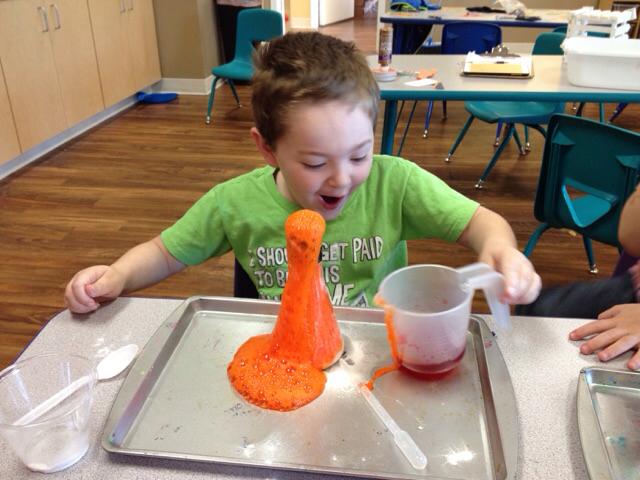
In an early childcare classroom like at Premier Academy, the teachers understand this too. They embrace that play is the child’s work, but they also incorporate facets of early childhood learning.
In the preschool classrooms, for instance, there are different centers that incorporate play-based learning into play. The centers include the Dramatic Play Center, Blocks Center, Large Motor Center and the Creative Arts Center. As kids play, they’re learning important social and emotional skills.
All the children at Premier also get to spend time outdoors, weather permitting. Both the West Omaha daycare and Elkhorn daycare have a 5,000 square foot outdoor playground!
I learned a lot just interviewing McKercher from Premier Academy in Omaha. If you thought she was helpful, too, and you happen to be in the market for childcare, I encourage you to check out her employer and see if Premier is the right fit for you!
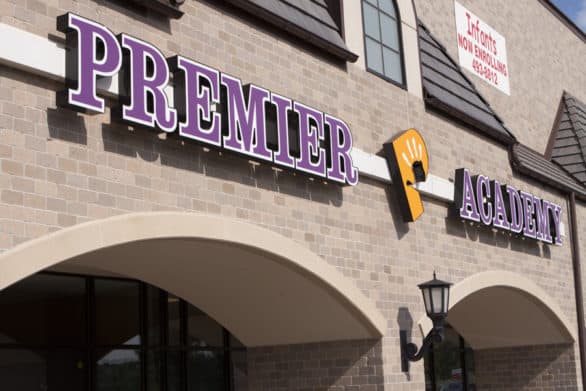
Schedule a Tour atPremier Academy Today!
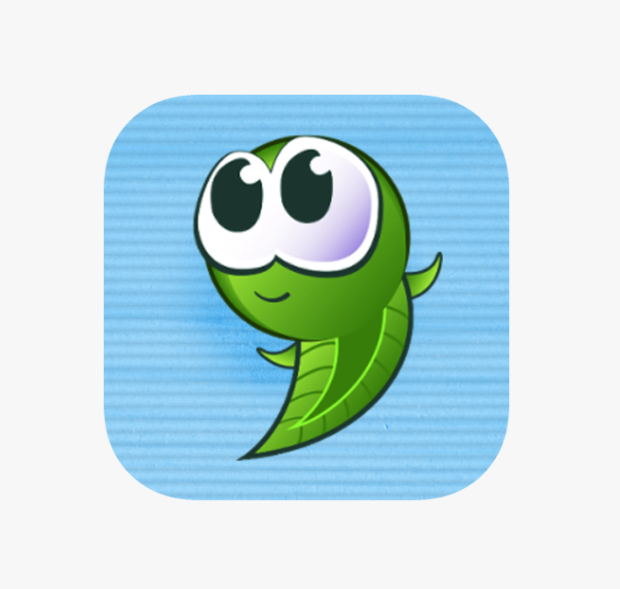 The Tadpoles app is just one of the many ways we at Premier Academy open our doors wide to parents. Through the Tadpoles app, parents always feel connected with their child because we use it to send reports, photos, videos, notes and reminders to them throughout the day.
The Tadpoles app is just one of the many ways we at Premier Academy open our doors wide to parents. Through the Tadpoles app, parents always feel connected with their child because we use it to send reports, photos, videos, notes and reminders to them throughout the day.
How many times have you been at the office or sitting in a meeting wondering what your child was up to? At Premier, we can help you stop wondering! How? Through the use of the Tadpoles app (get more information at www.tadpoles.com)! This app allows you to:
- Receive photos, videos and notes by email
- Download and share photos and videos of your children
- Receive emergency alerts by text message
- View your child’s portfolio using our mobile application
- Mark your child out sick or on vacation through our mobile application
The benefits of the Tadpoles app are numerous and online reviews confirm this. As one parent wrote, “Getting notifications throughout the day, seeing pictures, makes me feel like I’m still with them.”
Premier Academy offers the highest quality health care in the Omaha/Elkhorn area. To learn more about all we have to offer children and families
Visit Us at premieracademyinc.com
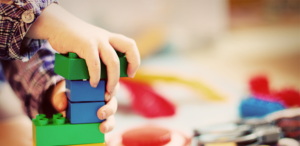 We here at Premier Academy know that choosing the right type of preschool for your child can be an overwhelming decision. Many parents wonder whether a preschool that uses the Montessori method is the right choice for their child of if a play-based approach is best.
We here at Premier Academy know that choosing the right type of preschool for your child can be an overwhelming decision. Many parents wonder whether a preschool that uses the Montessori method is the right choice for their child of if a play-based approach is best.
Many parents are unaware of the philosophies behind these types of preschools. What follows is a brief overview of Montessori and play-based preschools.
The Montessori Method: Montessori programs are child-directed, emphasizing active, self-paced, individualized learning. Children choose activities and concentrate on those activities for specific blocks of time. Teachers track a child’s progress through observation and assist children in their use of materials. Proponents of the Montessori method believe that this method allows children to become more confident, independent and self-disciplined.
Play-Based Preschool: The foundation of play-based preschools are that kids do best when they learn through play. Play-based preschool is teacher-directed; however, playtime is open-ended and unstructured. Students in play-based preschool learn cooperation, problem solving and social skills while participating in a variety of play-based activities. Teachers, in turn, provide educational lessons based on these play experiences.
There are benefits to both types of preschools and no two preschools are exactly alike. In other words, you can have excellent programs and weaker ones, regardless of the philosophy. Therefore, a decision on where to enroll your child based solely on preschool philosophy is not always the best course of action.
So what is the best course of action? When choosing a preschool for your child, keep in mind that childhood learning is built, first and foremost, on trusting relationships. And while positive relationships between children and educators can be tough to define, you will know it when you see it.
Even if you have your heart set on sending your child to a preschool based on a particular philosophy, it is important to visit that preschool before deciding if it is right for your child. During your visit, here are the things experts, parents and preschool teachers will tell you to be on the lookout for:
- Children who are nurtured and encouraged. The best preschool teachers know their students well. They call them by their names, they listen and do their best to understand what each student is trying to communicate. Children in the classroom are comfortable and relaxed because they know they can trust their teacher.
- Teachers who help, not punish, students. Preschoolers are developing social and emotional skills and are learning how to share and “use their words” to express how they are feeling. Good teachers are ones who reinforce these skills through consistent routines and other methods that focus on positive reinforcement.
- A fun and active environment. Children can be active and having fun without the classroom becoming chaotic. Teachers should provide activities that encourage children to think for themselves. One thing you do not want to see is a lot of worksheets and flashcards. While preschoolers need to learn, at this age, much of learning has to do with social and emotional skills.
- Staff members who love what they do. Working with kids all day every day isn’t for everyone. It is easy to spot someone who is working with children because it is their passion.
No matter what type of preschool philosophy you prefer, remember that what matters most is that your child is being taught by educators who promote intellectual curiosity and impart social skills. Children who are truly ready for kindergarten are not the ones who can read and write flawlessly but rather who enjoy learning, are comfortable in a classroom setting and know how to engage with children and adults.
Premier Academy offers affordable childcare in the Omaha/Elkhorn area.
If you’re ready to see what we have to offer sign up for a tour of one of our facilities.
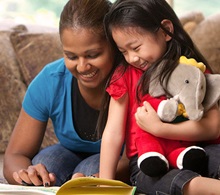 We here at Premier Academy know the importance of school readiness. The first five years are critical to a child’s lifelong development. Early experiences influence brain development, establishing the neural connections that provide the foundation for language, reasoning, problem solving, social skills, behavior, and emotional intelligence – characteristics that often determine how well a child will do in school and in life.
We here at Premier Academy know the importance of school readiness. The first five years are critical to a child’s lifelong development. Early experiences influence brain development, establishing the neural connections that provide the foundation for language, reasoning, problem solving, social skills, behavior, and emotional intelligence – characteristics that often determine how well a child will do in school and in life.
Because early childhood is an important stage of any kid’s life, today’s parents share high expectations for early achievement, including school readiness. 90% of parents surveyed cited academic preparedness as the most important factor in their child’s preschool experience. They want to ensure that their children enter school ready to meet or exceed academic expectations and with a demonstrable ability to apply their newly developing skills in reading, writing and math.
Teacher Perspectives on School Readiness
In a recent study, elementary school teachers shared their views on what they believe to be the most important school readiness factors for any child to succeed in a public or private school setting.
Teachers were unified in their feeling that children should enter their first years of school with an ability to comprehend broader language and math concepts, as well as to be prepared for the social and emotional demands of school. In fact, 96% of teachers surveyed indicated they believe that social and emotional preparedness are the most important outcomes of a child’s preschool experience in order for them to be poised for academic success in the elementary years.
- Teachers agree that key indicators of the children’s social and emotional readiness for kindergarten and first grade are readiness to accept new responsibilities and greater independence; a strong enthusiasm for learning; an ability to make new friends; and the ability to respect others. At Premier Academy, we focus on making sure your child has the emotional and social maturity required to succeed in Kindergarten and beyond.
- 96% believe the child’s pre-K experience played a critical role in the child’s preparedness for school.
Common Myths about What School Readiness Means for Your Child
There’s no reason for most parents to be anxious about school readiness. Children who come from homes where adults read, spend engaged time with their children, value literacy, and/or have some social interactions with other children in child care, playdates or groups, or preschool are usually well prepared for kindergarten.
But there are some common myths of which to be aware.
- Myth #1 – Learning the ABCs is crucial to school readiness.
The Truth: While important, learning the ABCs is a memorization skill. It’s more important that children recognize letters and identify their sounds to prepare for school. - Myth #2 – Children need to count to 50 before going to grade school.
The Truth: Again while it is important that children understand the order of numbers, when it comes to school readiness, it is far more important to understand the idea of 1-to-1 correspondence (each number counted corresponds to an object, person, etc.) and understanding quantity. - Myth #3 – The more teacher-directed the learning, the better.
The Truth: Children internalize concepts more fully when they are actively engaged in exploration and learning versus being told by someone else. Teachers should be there to guide learning. - Myth #4 – The more a program looks like the school we remember as a child the more children will learn.
The Truth: Young child learn best in an environment that allows them to make choices; to select their own materials for at least part of the day; and empowers them to try new things with a teacher who guides the learning. - Myth #5 – Children need quiet to learn.
The Truth: Children need a language-rich environment where adults provide responsive language interactions and where vocabulary is regularly introduced. - Myth #6 – Learning to write is all about letter formation.
The Truth: While letter formation is one part, even more important is understanding the idea of recording one’s ideas on paper. When a child makes some scribbles and says “This is my daddy,” write your child’s words on the picture and she will begin to make connections between spoken and written words.
Learning some “school skills” like lining up and raising hands before transitioning to school will certainly help make the transition to formal schooling easier; however, the best way to prepare your kids to enter school is giving them the chance to fully explore and experiment in an environment with caring adults who guide, support, and extend their learning. We can offer you all of that and more at Premier Academy.
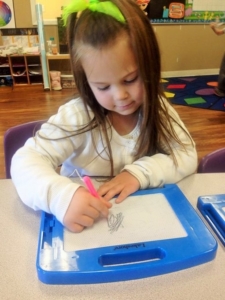 We here at Premier Academy are big believers in play based learning. We understand that one of the wonderful things about being a parent is that you are your child’s first teacher. You have the unique opportunity to open the door to the world; introducing your child to words, colors, animals and so much more. Learning can be weaved into the day naturally as you read, talk, sing, and play together. Mr. Rogers said it best, “Play is often talked about as if it were a relief from serious learning. But for children play is serious learning. Play is really the work of childhood.”
We here at Premier Academy are big believers in play based learning. We understand that one of the wonderful things about being a parent is that you are your child’s first teacher. You have the unique opportunity to open the door to the world; introducing your child to words, colors, animals and so much more. Learning can be weaved into the day naturally as you read, talk, sing, and play together. Mr. Rogers said it best, “Play is often talked about as if it were a relief from serious learning. But for children play is serious learning. Play is really the work of childhood.”
One of the wonderful things about being a parent is that you are your child’s first teacher. You have the unique opportunity to open the door to the world; introducing your child to words, colors, animals and so much more. Learning can be weaved into the day naturally as you read, talk, sing, and play together. Mr. Rogers said it best, “Play is often talked about as if it were a relief from serious learning. But for children play is serious learning. Play is really the work of childhood.”
7 Play Based Learning Activities to Do With Your Child
One of the wonderful things about being a parent is that you are your child’s first teacher. You have the unique opportunity to open the door to the world; introducing your child to words, colors, animals and so much more. Learning can be weaved into the day naturally as you read, talk, sing, and play together. Mr. Rogers said it best, “Play is often talked about as if it were a relief from serious learning. But for children play is serious learning. Play is really the work of childhood.”
When you engage your child in play, you are helping him or her to grow and to ignite a lifelong love of learning. Through hands-on activities, your child will begin to pair the knowledge gained during previous interactions with the new information. This builds understanding and skills. This is also a helpful guide to use when you are visiting a new childcare center or preschool for your child to see if the staff is using play to teach their students.
Each time you play, you are adding another building block of learning. So have fun and enjoy the time with your little one. To get you started here are seven play-based learning activities to do with your child.
- Play with a toy farm or house. The next time your child is playing with a toy farm or house, sit down on the floor with them and begin to engage. Start off just meeting them where they are; imitating what they do. As you continue, you can start to naturally introduce words and concepts like inside, outside, on top, going upstairs, downstairs whatever occurs to you as you and your child are playing at the moment. Maybe the doll is sleeping and going upstairs to bed, or the brown cow is mooing at the farm. As you play alongside your child, asking questions, adding comments, and being interested in this shared interaction is when learning will occur. Your child will also see how to use the toy productively. Most childcare centers will have many different types of toys stored in bins with similar toys (i.e. all of the farm animals go in one bin together). When clean-up time rolls around, this helps the children conquer the art of matching and sorting.
- Make something together in the kitchen. Figure out a kid-friendly snack that your child will enjoy eating and shop for the ingredients together. Choose something that matches your child’s skill level. If your child loves fruit, cutting up a banana may be the place to start. It is important to keep it simple and fun for your toddler. Try drawing out out the recipe in little pictures so your child can read the recipe too with you. If you are making something like ants on a log, you can add some math by counting out the number of ants you are putting on the log. They can even help you clean up. If they are old enough, they can help at the sink, while younger children will enjoy a basin of sudsy water to clean up some toy dishes. Many childcare centers have a designated “snack helper” where a child will be invited to assist a staff member in preparing the snack or meal for the day. Not only is this fun and makes that child feel special for the day, but it also teaches the child the responsibility and sharing with friends.
- Get rolling with play dough. That colorful dough you grew up with provides hours of fun and learning opportunities. You can make your own, as there are lots of recipes on Pinterest and in library books or bring home a few colorful cans of the store bought kind. Kids love getting their hands in the play dough – rolling, squishing, stretching, molding, and sculpting. Not only does this activity stretch the imagination as your child creates flowers, animals, bracelets and more, but all of that fine motor work is strengthening the muscles in his or her fingers in preparation for holding a pencil at school some day. Gather some props from around the house to make things interesting. Try cookie cutters, bottle caps, blocks, buttons, combs, birthday candles, straws, and leaves; whatever interesting things you have on hand that would be great fun to use making shapes and impressions. While you are playing together or with siblings and friends, your child can learn social skills like taking turns and sharing. In addition, playing with this childhood favorite builds language and literacy, science and math skills. Who knew play dough was such a powerful learning tool?!
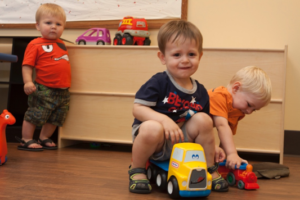 Play along. When your child is playing dress up, caring for her baby doll, pushing a train, or pretending to grocery shop or baking some cookies, play along. Why? You will be helping to build abstract thinking. Support your child’s learning by joining in play. Using an object to pretend to be on the phone is actually a type of symbol. And letters and numbers are abstract, so pretend play is one of the ways to develop understanding. There are simple and affordable ways you can encourage pretend play. Keep a box of dress up clothes, old costumes, and baubles and beads accessible. Empty and tape up some of your cracker, pudding, cereal boxes for grocery store play. Provide your child with crayons and paper to write their shopping list. The act of creating the symbols, scribble or not, will build pre-learning skills. When observing a childcare or preschool look to see if they have “stations,” like a house or a store set-up to encourage this type of abstract play with other children.
Play along. When your child is playing dress up, caring for her baby doll, pushing a train, or pretending to grocery shop or baking some cookies, play along. Why? You will be helping to build abstract thinking. Support your child’s learning by joining in play. Using an object to pretend to be on the phone is actually a type of symbol. And letters and numbers are abstract, so pretend play is one of the ways to develop understanding. There are simple and affordable ways you can encourage pretend play. Keep a box of dress up clothes, old costumes, and baubles and beads accessible. Empty and tape up some of your cracker, pudding, cereal boxes for grocery store play. Provide your child with crayons and paper to write their shopping list. The act of creating the symbols, scribble or not, will build pre-learning skills. When observing a childcare or preschool look to see if they have “stations,” like a house or a store set-up to encourage this type of abstract play with other children.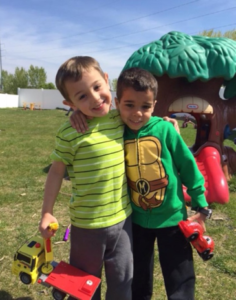 Discover the outdoors. Get outside to discover nature. Take a walk, whether it is around the neighborhood or your backyard. Exploration and discovery help children more fully understand the world around them. With safety in mind, you can encourage your child to touch, lift, and look under a log or a rock and then carefully replace it as to care for the critters that may be underneath. You can ask questions too. Such as, what did you find? A bug? Also, think about asking questions in such a way that it gets your child thinking and drawing conclusions from their previous experiences with you in nature. Incorporate senses like what you see, feel, hear or smell. Was something soft or hard? Were the leaves a different or same color the last time you explored? Playtime at daycare or preschool is not only what kids look forward to all day but it’s prime time for building those social skills. Weather it’s taking turns on the swings or helping a friend build a sand castle, children will learn real life skills for interacting with their classmates that will stick with them for years to come.
Discover the outdoors. Get outside to discover nature. Take a walk, whether it is around the neighborhood or your backyard. Exploration and discovery help children more fully understand the world around them. With safety in mind, you can encourage your child to touch, lift, and look under a log or a rock and then carefully replace it as to care for the critters that may be underneath. You can ask questions too. Such as, what did you find? A bug? Also, think about asking questions in such a way that it gets your child thinking and drawing conclusions from their previous experiences with you in nature. Incorporate senses like what you see, feel, hear or smell. Was something soft or hard? Were the leaves a different or same color the last time you explored? Playtime at daycare or preschool is not only what kids look forward to all day but it’s prime time for building those social skills. Weather it’s taking turns on the swings or helping a friend build a sand castle, children will learn real life skills for interacting with their classmates that will stick with them for years to come.- Get sensory. Did you know that those bargain-priced cans of shaving cream you picked up with your coupons can be used for sensory play? Sit at the kitchen table with your child and squirt some of the foam onto the table for each of you. Move your fingers through the foam, drawing letters, shapes, numbers, silly faces, whatever inspires you. Encourage your child to do the same. What does it feel like? Do you need more? Gentle prompts and questions will make this experience fun. Sensory tables are very popular at many schools. These tables could be filled with dry noodles, water, sand or any other type of material. The goal is to get kids talking about what they see and how it feels.
- Read together. Yes, get out the books and read, read, read. Don’t have enough? The public library is always happy to let you borrow as many as you want. And they have age appropriate books for your child, from board books on up. When visiting different childcare centers or preschools you should always make sure there are an abundance of books! You can also ask the facility if they change the books out regularly so the children are exposed to new topics regularly. Reading out loud to your child can also encourage a bit of play. You can be silly, use funny voices, dress up like your favorite characters or cook up some other ideas. Many a fun book has spurred related crafts and even snacks and games that relate to the book characters. Try reading something like Eric Carle’s “The Very Hungry Caterpillar”, Mary Ann Hoberman’s “The Seven Silly Eaters” or any number of Robert Munsch’s books like “Mud Puddle” or “Moira’s Birthday.” They are fun, and your child will see you model reading, begin learning language, and most importantly, have cherished time with you.
Take our Learn & Play Discovery Tour by Jan. 14 and you’ll receive a FREE Gift!
Schedule a tour at Premier Academy Today!
Operating Hours
Monday-Friday
Omaha: 6:30 A.M. – 6:00 P.M.
Elkhorn: 6:30 A.M. – 6:30 P.M.
Premier Academy Elkhorn
20111 Roberts St.
Elkhorn, NE 68022
Phone (402) 289-2239
Enrollment Specialist: director@premieracademyinc.com
Premier Academy Omaha
3525 N. 147th St.
Omaha, NE 68116
(SW Corner of 144th & West Maple rd.)
Phone: (402) 493-8812
Enrollment Specialist: veronica@premieracademyinc.com
